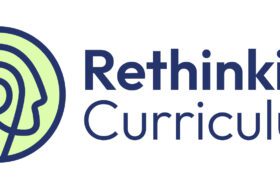In this Early Career Hub: Live webinar recording, Dr. Lisa-Maria Muller (Education Research Manager, Chartered College of Teaching) was joined by Dr. Keith Watson (Associate, National Association for Able Children in Education (NACE) who delivered a presentation on identification, planning and effective provision for more able, gifted and talented pupils (MAGT).
This presentation supports Early Career Teachers in:
- Knowing why it is important to meet the needs of more able pupils
- Knowing how to get started with identification and planning
- Understanding how to meet the needs of the more able in your class – tried and tested examples will be given that can improve teaching and better meet the needs of these learners
- Considering what current research means for more able learners and how it can inform teaching
Participants will also had the opportunity to ask questions in a Q&A towards the end of the webinar.
About NACE
An independent charity founded over 35 years ago, the National Association for Able Children in Education (NACE) works with member schools, education leaders and practitioners to improve provision for more able learners, driving whole-school improvement and raising achievement for all. School membership starts from just £95 +VAT per year, covering all staff, and providing access to online resources, webinars, networking opportunities and more.
Find out more at: www.nace.co.uk/membership
or contact: membership@nace.co.uk
Useful links:
Relevant shared links:
- Making space for able learners – cognitive challenge: principles into practice: https://www.nace.co.uk/page/making-space
- Keith Watson’s article on ‘Getting started with more able pupil provision’: https://earlycareer.chartered.college/getting-started-with-more-able-pupil-provision/
- Challenging Able, Interested and Motivated (AIM) children within and beyond core subjects: a case study: https://impact.chartered.college/article/challenging-able-interested-and-motivated-children-core-subjects-case-study/
- Shattering the Subject Silos: Learning about Big Questions and Epistemic Insight: https://impact.chartered.college/article/shattering-the-subject-silos-big-questions-epistemic-insight/
- Student researchers: For the love of developing knowledge:
https://impact.chartered.college/article/student-researchers-love-developing-knowledge/ - Self-assessment toolkits on research engagement (teacher-level or school level): https://my.chartered.college/resources/research-engagement-toolkits/
- Expertise Reversal Effect and its Instructional Implications:
https://impact.chartered.college/article/expertise-reversal-effect-instructional-implications/ - Independent Digital Learning: paradoxes, problems and potential in classroom practice:
https://impact.chartered.college/article/independent-digital-learning-paradoxes-problems-potential-classroom-practice/ - Strengths and weaknesses of cooperative and problem-based learning:
https://my.chartered.college/2019/10/strengths-and-weaknesses-of-cooperative-and-problem-based-learning/ - National Association for Able Children in Education (NACE):
www.nace.co.uk/membership - Identifying more able learners beyond the numbers: https://www.nace.co.uk/blogpost/1764163/327555/Identifying-more-able-learners-beyond-the-numbers
- Online course for early career teachers: “Getting started with more able” https://www.nace.co.uk/page/course-early-careers-2020
- “Beyond the recovery curriculum” – free resource pack
https://spark.adobe.com/page/0EhqlXq63tYgZ/ - More sample resources:
https://www.nace.co.uk/page/resources-sample





